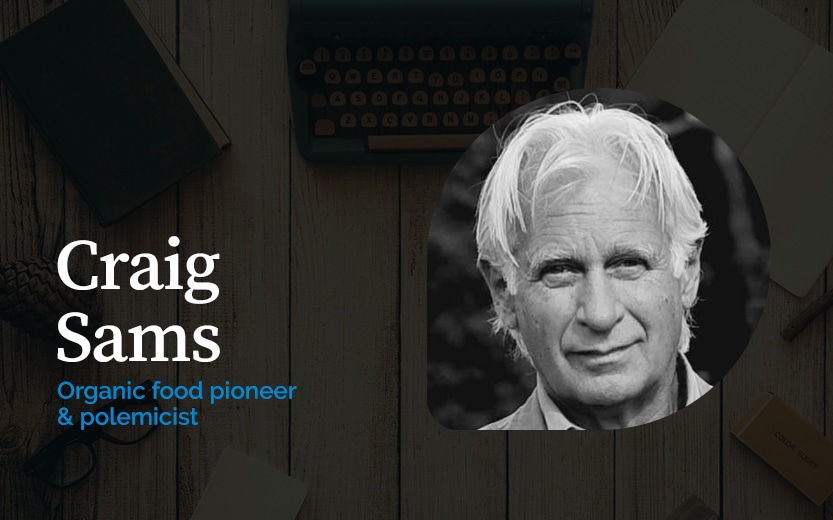In-fighting among psychiatrists over what constitutes mental illness has hit new levels. Craig Sams offers to diagnose their dysfunctional behaviour.
Stop the press! The American Psychiatric Association is publishing the latest edition of the ‘DSM’ (that’s the Diagnostic and Statistical Manual of Mental Disorders to you and me). People are mentally ill in pretty much the same way they’ve always been – but the diagnosis and treatment are flip-flopping hither and thither. Vast amounts of money have been poured into psychiatric research, making neuroscience a big money spinner for researchers. Result after 30 years? Zilch, nada, just more arguing within the psychiatric profession.
To oversimplify:
• Some time ago mentally ill people were ‘schizophrenic’ (two minds)
• Then the DSM partially reclassified it as ‘manic-depressive’ (two states of mind)
• Then the DSM decided that there was another variant: ‘bipolar disorder’ (two mental states)
• And what’s more, ‘manic’ in a kid could be ‘Attention Deficit Hyperactivity Disorder’ – worthy of putting the kid on addictive Ritalin.
These diagnoses can often overlap, so now they are wondering if there’s a common cause that could explain the overlap.
There’s plenty of evidence that biological problems could affect brain circuits involving emotion, cognition and behaviour.
The research to nail down the genetic causes of mental illness has got nowhere. The research to find biological markers has got nowhere.
The attempt to locate centres of mental activity haven’t moved much from the old skulls of phrenologists marked with ‘acquisitiveness,’ ‘hope’, ‘secretiveness’ or ‘sublimity.’ That was when they thought the bumps on your head could reveal your inner personality.
Psychiatric drugs are not a cure, sometimes just a chemical cosh, often misprescribed. They can suppress powerful human instincts such as the reluctance to commit suicide. A prescription can be a lifetime sentence to pill popping.
The guru of Zen Macrobiotics, Georges Ohsawa, listed mental illness as the hardest disease to cure, but believed that if a mentally ill person got on track to good physical health then good mental health would follow.
The Royal Marines take a more manly approach, with the motto ‘Mens Sana in Corpore Sano.’ This translates as ‘a healthy mind in a healthy body.’
The natural food business is the delivery system of the healthy eating movement, reflecting the belief that if we eat wholesome natural foods we will enjoy good physical and mental health.
In the early days people who said you should eat more wholegrains and vegetables were categorised as wackos or crazies. Now the World Health Organisation, the UK Ministry of Health, the US Centers for Disease Control etc all say “eat more wholegrains and vegetables and exercise”.
Doctors struggle to keep up, it’s much easier to prescribe a painkiller or a blood pressure drug than to advise on a healthy lifestyle of regular exercise and nutritious organic food. But at least they now begrudgingly admit that you should eat less junk and walk around a bit.
So what’s with the psychiatric profession? Why don’t they get it? Do they have some kind of major mental block about disorders?
Mental illness is a lot more complicated than physical illness. The symptoms are more erratic and you can’t pin them down to a specific organ. They’ve tried to map the brain for ages, using one sophisticated method after another, issuing press releases full of misplaced hope that have only ensured more taxpayer-funded research money is squandered on misguided projects.
Mental illness can, rarely, be a disease of the brain. But very often is just a behavioral reflection of a deep physical disorder. People with mental health problems are statistically more likely to have diseases of gut dysbiosis such as coeliac disease, irritable bowel syndrome, gluten intolerance and sprue. People with serious gut health problems often suffer depression. Any clues here?
The natural and organic foods delivery system offers a cure for an ecologically sick planet and for physically sick humans.
Can it also, perhaps, offer the most effective route to dealing with the epidemic of mental illness that has left the psychiatric profession spitting tacks at each other and getting no closer to a solution?
‘Mens sana in corpore sano.’ Bleedin’ obvious and no less true today than 2100 years ago.
 By Craig Sams
By Craig Sams
Organic food pioneer and polemicist
Craig Sams is Britain’s best known natural food pioneer. He is the founder of Green & Blacks, a former Soil Association chairman and the author of The Little Food Book.











